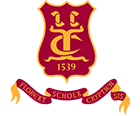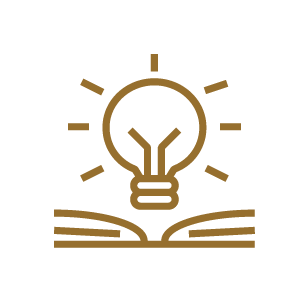“Literacy is a bridge from misery to hope. It is a tool for daily life in modern society. It is a bulwark against poverty, and a building block of development, an essential complement to investments in roads, dams, clinics and factories. Literacy is a platform for democratization, and a vehicle for the promotion of cultural and national identity…Literacy is, finally, the road to human progress and the means through which every man, woman and child can realize his or her full potential.” Kofi Annan
Fundamental to every student’s future success is the acquisition of effective literacy skills. This belief underpins the development of literacy at The Crypt School. By focusing on the subject specific literacy skills needed to succeed, students are able to access and comprehend all parts of the curriculum. This disciplinary literacy also ensures that our students are able to articulate their understanding using communication methods appropriate to each subject. Consequently, our students are fully prepared for the challenges of higher education and employment in their futures.
Literacy encompasses reading, writing, speaking, listening and vocabulary development across the curriculum. How we read, write or speak in science compared to history compared to French is very different. Therefore, we aim to equip students with the knowledge and skills to flourish in each academic area. Recent foci have included the promotion of challenging fiction and non-fiction texts in lessons, the compilation of subject-specific key word lists (in conjunction with SEND priorities) and improving the quality of independent writing with an emphasis on sentence construction.
Reading is such a vital tool for learning that students in years 7 and 8 benefit from a dedicated reading lesson and participate in the Accelerated Reader Programme. This programme provides students with personalised goals to help them focus on how they can improve their reading. With access to a huge variety of books, either paper back or via our e-book site, students can self-select books of interest to keep them progressing. Progress in reading is reported home to parents and monitored so we can further support students that need any extra help.
Elsewhere in the curriculum, students are introduced to a range of texts appropriate for each subject area and are shown the strategies needed to unlock those texts. This may include exploring the origins and structures of specialist, academic vocabulary; identifying the type of text; predicting the content of a text; clarifying its meaning or summarising the content after close reading. Students are encouraged to read aloud in lessons in order to develop their fluency when reading.
Oracy has been a key focus for a number of years with students frequently participating in discussions within lessons in order to practise articulating their ideas prior to completing written work.High expectations are set with academic language being used and responses being phrased in full sentences. Opportunities are provided for the development of debating skills both in lessons and through the school’s Debating Club.
Literacy is also being developed through the morning tutor sessions. Activities have enabled students to expand their vocabulary through exposure to new words as well as exploring associated words. Tutor reading has recently been introduced with texts such as poems, short stories and speeches being shared with students. This helps expand student’s broader general knowledge base alongside developing their literacy.
Students are also encouraged to develop their literacy through our merit system (E-praise) in which they can earn specific merits for demonstrating good literacy.
Literacy Interventions
We offer additional support to students to help them improve their literacy in Y7, Y8 and Y9. The need of the individual determines the type of support they receive, but would usually include punctuation, grammar and other writing skills.
At GCSE students receive a ‘SPAG’ (spelling, punctuation and grammar) grade in English when their grades are sent home to parents. This helps students and parents to understand the importance of literacy. Students are then supported in lessons to improve their SPAG marks over the course of the GCSE. Lunch time and after school session are also provided to those that need more support at GCSE.












